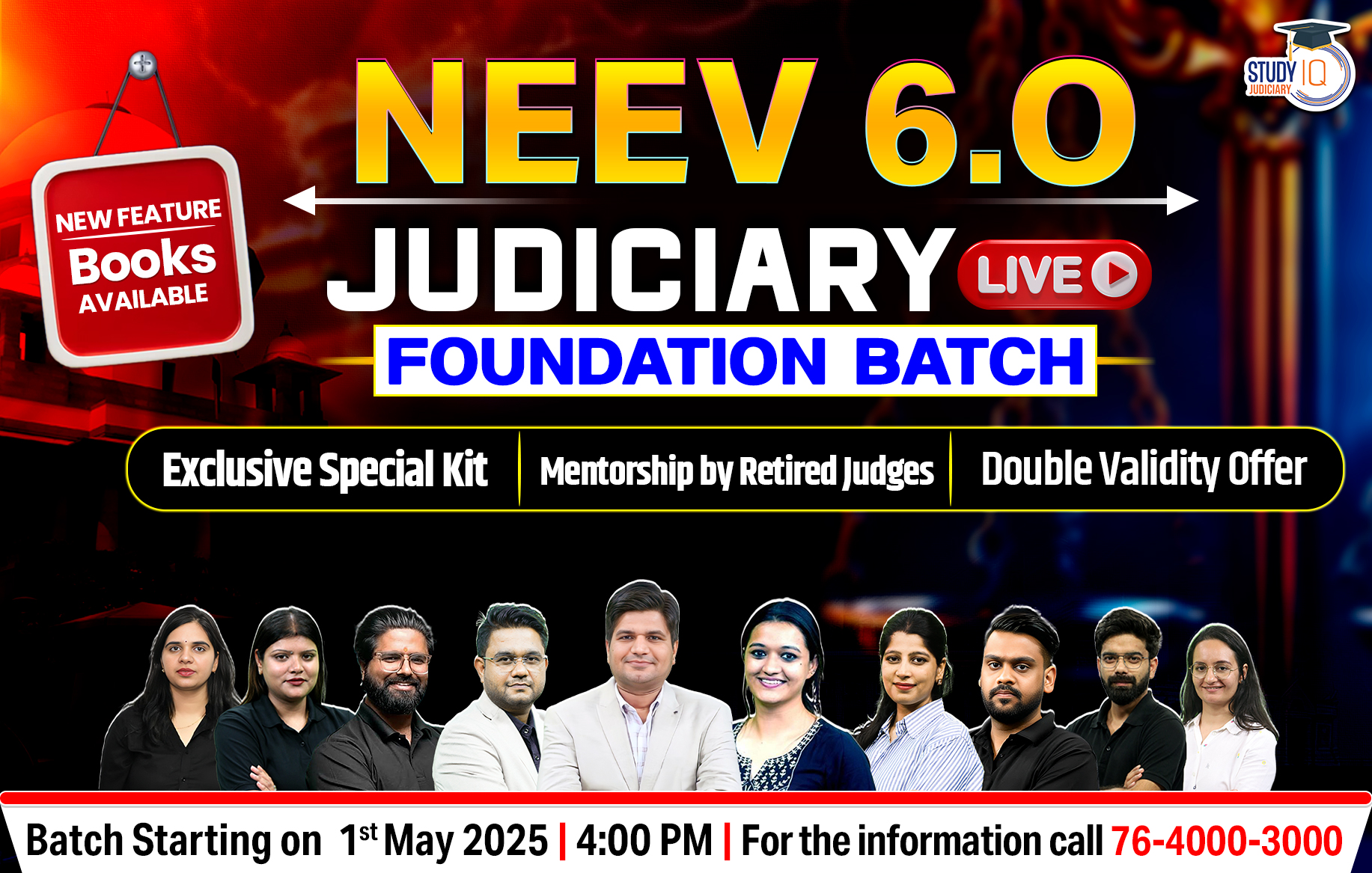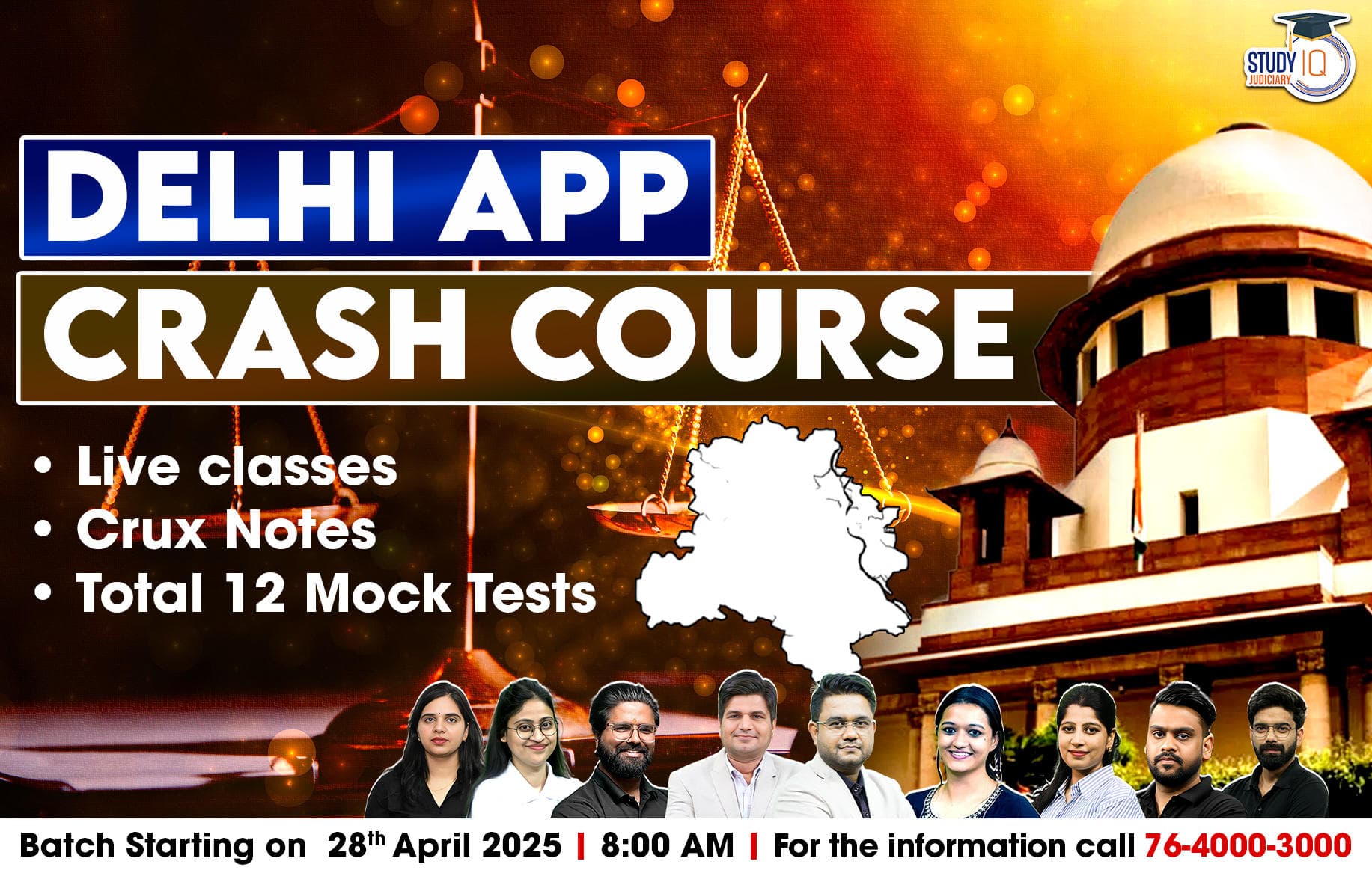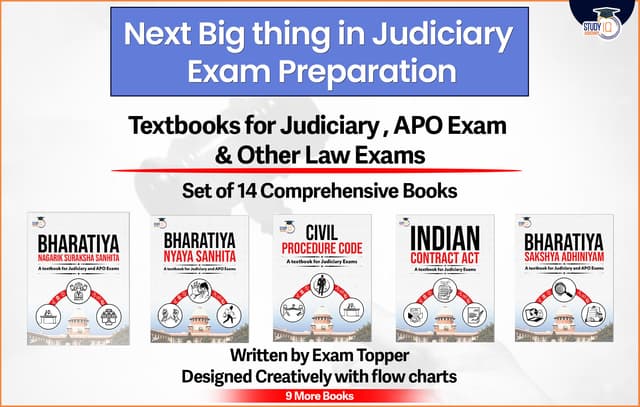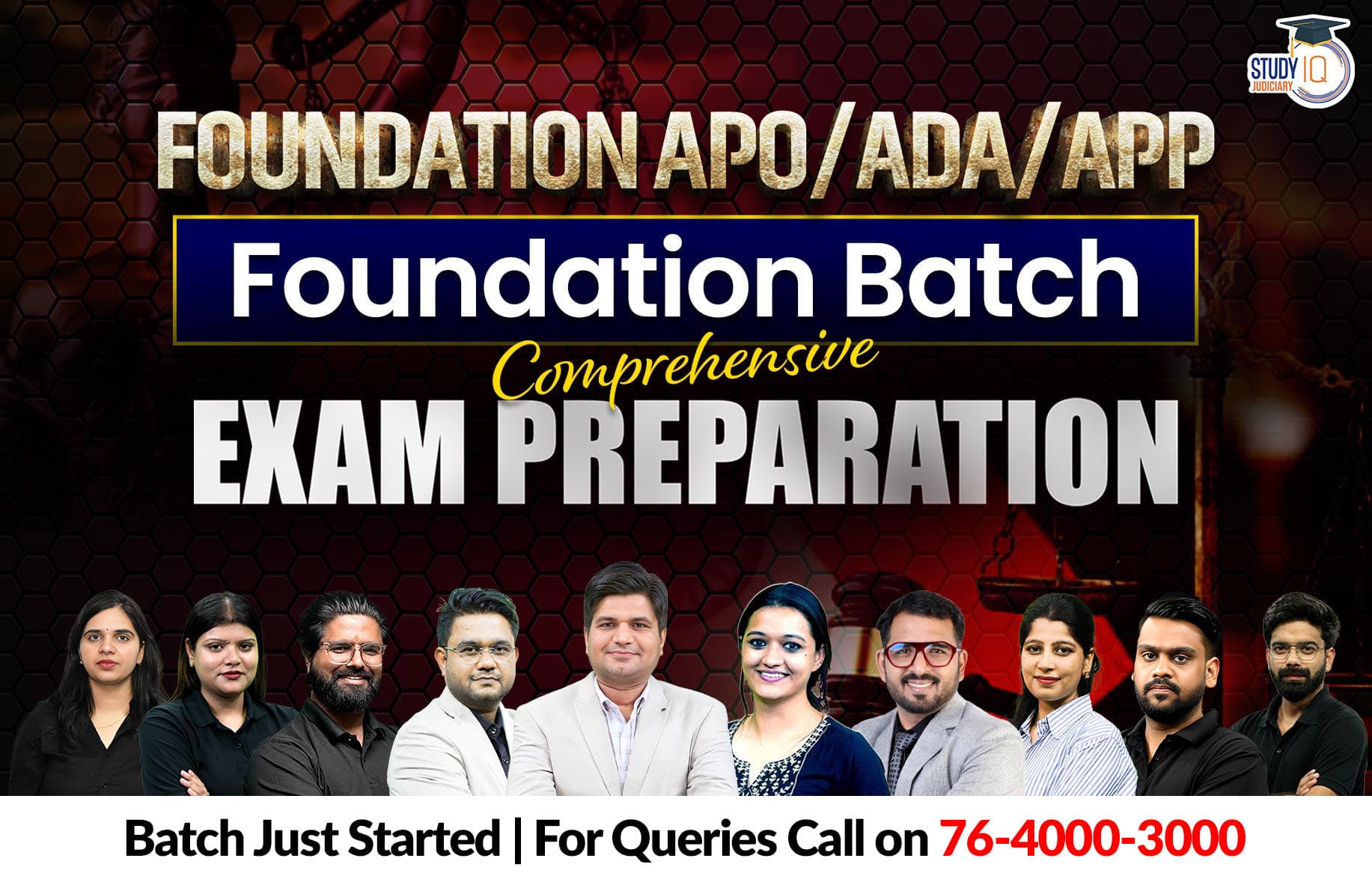The Odisha Public Service Commission (OPSC) has released the official OJS Syllabus along with the exam pattern in its notification. Candidates preparing for the Judiciary must have an idea about the Syllabus and exam pattern for preparing for recruitment. This notification presents a significant opportunity for law graduates aspiring to pursue a career in the judicial services of Odisha. Check Out the Odisha Judicial Service Syllabus in this article.
Odisha Judicial Service Syllabus 2024
The Odisha Judicial Service syllabus evaluates candidates on legal concepts including the Indian Constitution, procedural laws, evidence, and criminal codes. The syllabus covers topics such as the Constitution of India, Code of Civil Procedure, Code of Criminal Procedure, Evidence Act, and Indian Penal Code. Additionally, candidates must study general English and procedural laws in-depth. Optional papers include Law of Crime and Law of Torts, Personal Law, Law of Property, Law of Contract, and Jurisprudence and Constitution of India. Regular practice, thorough understanding of concepts, and staying updated with current affairs are crucial for success in this examination.
| Category |
Details |
| Organization |
Odisha Public Service Commission (OPSC) |
| Name of Exam |
Odisha Judicial Service Exam 2024 |
| Name of Post |
Civil Judges (Junior Division) |
| Total Vacancies |
34 |
| Job Location |
Odisha |
| Official Website |
www.opsc.gov.in |
Odisha Judicial Services Exam Pattern 2024
Odisha Judicial Services Exam consists of three stages of selection: Prelims, Mains, and Interview. The candidates must understand the exam pattern of all the papers to know the weightage given to each topic. The exam pattern for the written exam is given below.
OJS Prelims Exam Pattern
| Subject |
No. of Questions |
Total Marks |
Duration |
| Constitution of India |
100 questions |
100 marks |
1 hour 30 minutes |
| Code of Civil Procedure |
| Code of Criminal Procedure |
| Evidence Act |
| Indian Penal Code |
| Limitation Act |
| Transfer of Property Act |
| Contract Act |
| Law of Succession (Indian Succession Act and Hindu Succession Act) |
| Specific Relief Act |
- There are a total of 100 questions in the Preliminary Exam
- The exam is conducted for a total of 100 marks
- For each correct answer the candidate is awarded 1 mark.
- For every wrong answer 1/4th marks are deducted.
- The duration of the exam is 1 hour 30 minutes.
- The candidates belonging to SC/ST category must score a minimum of 35% marks and candidates from other categories must score 40% marks to qualify for the next round of the selection process.
OJS Main Exam Pattern
The Odisha Judicial Services Exam has 2 compulsory papers and three optional papers. The exam patterns for both the papers are given below:
Compulsory Examination
| Paper |
Subject |
Marks |
Duration |
| Paper -1 |
General English
- Translation and retranslation of ten lines
- A short essay
- Precis writing with 300 words
- Passage with questions
|
150 marks |
2 hours 30 minutes |
| Paper-2 |
Procedural Laws
- The code of Criminal Procedure, 1973
- The code of Civil Procedure, 1908
- The Indian Evidence Act
|
150 marks |
2 hours 30 minutes |
| Total |
300 |
– |
- Paper-1 and Paper-2 of the Compulsory paper are conducted for 150 marks each.
- The duration of each exam is 2 hours 30 minutes.
- In the translation section, the sentences must be translated from English to Odia and vice versa.
The Optional Paper
| S. No |
Subject |
Total Marks |
Duration |
| 1 |
Law of criminal & Law of torts |
150 marks |
3 hours |
| 2 |
Persona Law
- Hindu Law
- Mohammedan Law
|
150 marks |
3 hours |
| 3 |
Law of Property
- Transfer of Property, 1982
- Specific Relief Act, 1963
- Indian Limitation Act. 1963
|
150 marks |
3 hours |
| 4 |
Law of Contract
- Indian Contract Act, 1872
- Sales of goods Act, 1930
- Partnership Act, 1932
- Negotiable Instrument Act, 1881
|
150 marks |
3 hours |
| 5 |
Jurisprudence and Constitution of India |
150 marks |
3 hours |
- The candidates can pick any 3 subjects from the subjects given in the table below.
- Each subject carries 150 marks and must be attempted within a duration of 3 hours.
- The candidates having 45% aggregate marks and minimum 33% marks in each paper will be qualified for the next round, i.e. interview.
OJS Prelims Syllabus
The Preliminary Examination serves as the first screening stage and tests candidates on fundamental legal principles and concepts. The syllabus includes:
| Subject |
Syllabus |
| Constitution of India |
- Constitution’ meaning of the term, Indian Constitution: Sources and constitutional history, Features: Citizenship, Preamble, Fundamental Rights and Duties, Directive Principles of State Policy
- Union Government and its Administration: Structure of the Indian Union: Federalism, Centre- State relationship, President: Role, power and position, PM and Council of ministers, Cabinet and Central Secretariat, Lok Sabha, Rajya Sabha
- State Government and its Administration: Governor: Role and Position, CM and Council of ministers, State Secretariat: Organisation, Structure and Functions
- Local Administration: District’s Administration head: Role and Importance, Municipalities: Introduction, Mayor and role of Elected Representative, CEO of Municipal Corporation, Pachayati raj: Introduction, PRI: Zila Panchayat, Elected officials and their roles, CEO Zila Pachayat: Position and role, Block level: Organizational Hierarchy (Different departments), Village level: Role of Elected and Appointed officials, Importance of grass root democracy.
- Election Commission: Election Commission: Role and Functioning, Chief Election Commissioner and Election Commissioners, State Election Commission: Role and Functioning, Institute and Bodies for the welfare of SC/ST/OBC and women
|
| Code of Civil Procedure |
Suits in General:
- Definition – Decree, decree holder, judgment, judgment debtor, legal representative, mesne profit, order and pleader, Cause of action.
- Jurisdiction of the Courts (Subject matter, territorial and pecuniary)
- Res subjudice
- Res judicata
- Foreign Judgment
Suits:
- Parties to Suits.
- Framing of Suits.
- Pleadings generally (Order VI).
- Plaint – Order VII.
- Written Statement- Order VIII (Set-off & Counter-claim).
- Appearances – Exparte Decree, dismiss for default.
- Costs and Interest
- Filing a Caveat
Trial of suits and Execution of Decrees:
- Summons-Issue and Service of Summons.
- Summoning and Attendance of witnesses.
- Withdrawal and adjustment of Suits.
- Examination of parties by the court.
- Temporary & permanent injunction and Interlocutory Orders.
- Arrest and Attachment before Judgment.
- Execution of Decrees – Executing Court, Modes of Execution etc.
Appeals, Reference, Review and Revision:
- General provisions relating to appeals
- First Appeal
- Second Appeal
- Appeals to the Supreme Court
- Appealable Orders
- Reference
- Review
- Revision
- Inherent Powers of Court
Special suits:
- Suits by/against minors and persons of unsound mind.
- Suits by/ and against indigent people.
- Suit by/and against the Government.
The Limitation Act, 1963:
- General Provisions as to the Bar of Limitation and Extension of the prescribed time (Sections 1-5)
- Legal Disability, exclusion of time etc. (Sections 6-24)
- Acquisition and Extinguishment of Proprietary rights by the virtue of limitation (Sections 25-27)
|
| Code of Criminal Procedure |
Arrest:
- Meaning and purpose of arrest
- Arrest with a warrant
- Arrest without a warrant
- Arrest by a private Person
- Arrest of a woman
- Arrest how made
Search and Seizure:
- Search with a warrant
- Search without warrant
- General provisions relating to searches
- Illegalities in a search and its consequences
Investigation:
- Meaning and purpose of Investigation
- Who can investigate?
- When police can investigate?
- Information to the police
- F.I.R. and procedure after the recording of the F.I.R
- Evidentiary value of statements made to the police
- Investigation in the case of unnatural deaths and suicides, in police custody
Bail:
- Bail: concept, purpose: constitutional overtones
- When release on bail is mandatory?
- When release on bail is Discretion?
- Anticipatory bail
Charge:
- Framing of charge
- Form and content of charge
- Separate charges for distinct offence
- Discharge – pre-charge evidence
Trials:
- Trial before a court of session
- Trial of warrant cases
- Procedure for trial in a summons case
- Summary trials
Appeal, Reference, Revision and Transfer:
- Appeal
- Reference to High Court
- Revision
- Transfer of cases
Maintenance of wives, children and Parents:
- Essential conditions for granting maintenance
- Jurisdiction of Magistrates
- Alteration of allowance
- Cancellation of the order of the maintenance
|
| Evidence Act |
- Doctrine of res gestae
- Conspiracy
- Plea of alibi
- Other relevant fact (Section 7, 8,9,12, 13, 14, 15, 16,34, 42,43 and 44)
- Admission
- Confessions 28-31
- Dying Declaration
- Relevancy of certain evidence for proving the truth of facts in subsequent proceeding (section 33)
- Expert Testimony
- Opinion of third person
- Character when relevant
- Oral, documentary, primary and secondary evidence (Section 59- 65)
- Public and private documents
- Presumption (Section 79, 80, 85, 85A, 85B, 85C, 88A, 90 And 90A)
- Exclusion of oral by documentary evidence
- Ambiguous documents
- Burden of Proof
- Estoppel
- Witnesses
- Privileged Communications
- Accomplice
- Examination of witnesses (section 136-140, 143-153 and 155)
- Leading questions (Section 141,142)
- Hostile witness (Section 155)
- Refreshing Memory (Section 159)
|
| Indian Penal Code |
- Essential Elements of Crime – Actus Reus & Mens Rea and Stages of Crime
- General Explanations
- Punishments
- General Exceptions
- Abetment
- Hurt & Grievous Hurt
- Wrongful Restraint & Confinement
- Theft, Extortion, Robbery, Dacoity
- Criminal Misappropriation of Property & Criminal Breach of Trust
- Receiving Stolen Property & Cheating
- Mischief & Criminal Trespass
- Offences relating to Documents
- Offences relating to Marriage – Bigamy, Adultery Cruelty
- Crime against Women
- Criminal Intimidation
- Insulting Modesty of Woman
- Defamation
- Attempt to Commit Offences
|
| Limitation Act |
- Definition – Decree, decree holder, judgment, judgment debtor, legal representative, mesne profit, order and pleader, Cause of action.
- Jurisdiction of the Courts (Subject matter, territorial and pecuniary)
- Res subjudice
- Res judicata
- Foreign Judgment
- Parties to Suits.
- Framing of Suits.
- Pleadings generally (Order VI).
- Plaint – Order VII.
- Written Statement- Order VIII (Set-off & Counter-claim).
- Appearances – Exparte Decree, dismiss for default.
- Costs and Interest
- Filing a Caveat
- Summons-Issue and Service of Summons.
- Summoning and Attendance of witnesses.
- Withdrawal and adjustment of Suits.
- Examination of parties by the court.
- Temporary & permanent injunction and Interlocutory Orders.
- Arrest and Attachment before Judgment.
- Execution of Decrees – Executing Court, Modes of Execution etc.
- General provisions relating to appeals
- First Appeal
- Second Appeal
- Appeals to the Supreme Court
- Appealable Orders
- Reference
- Review
- Revision
- Inherent Powers of Court
- Suits by/against minors and persons of unsound mind.
- Suits by/ and against indigent people.
- Suit by/and against the Government.
- General Provisions as to the Bar of Limitation and Extension of the prescribed time (Sections 1-5)
- Legal Disability, exclusion of time etc. (Sections 6-24)
- Acquisition and Extinguishment of Proprietary rights by the virtue of limitation (Sections 25-27)
|
| Transfer of Property Act |
- Movable & Immovable Property
- Instrument
- Attestation
- Registration
- Attached to earth
- Actionable claim
- Notice
- Movable and Immovable property
- Transfer of property- meaning and elements
- What kinds of property can be transferred
- Restrictions on alienation of property
- Restrictions on enjoyment of property
- Transfer to unborn person
- Rule against perpetuity
- Vested and contingent interests
- Conditional transfers
- Ulterior transfer
- Doctrine of election
- Rule relating to apportionment
- Doctrine of holding out
- Feeding the grant by estoppel
- Doctrine of priority
- Transfer lis pendens
- Doctrine of part performance
- Meaning, essentials and kinds of mortgage
- Right to redeem
- Right to foreclosure or sale
- doctrine of priority
- Doctrine of marshalling and contribution
- Doctrine of subrogation
- Charges
|
| Contract Act |
- Contract: Meaning, Nature and Types
- Historical Background of Indian Contract Laws
- Indian Contract Act, 1872
- Major Definitions under Indian Contract Act, 1872
- Formation of an Agreement
- Intention to Create Legal Relationship
- Proposal and Acceptance- Their various forms, Essential Elements
- Communication
- Revocation- Mode of Revocation of Offer
- What agreements are Contracts
- Legal Disability to Enter into Contract
- Minors, Persons of Unsound Mind
- Effects of Minors Agreement
- Persons disqualified by Law
- Liability for Necessaries Supplied to the Minor
- Indian Contract Act, 1872, (Ss. 10 – 12, 64, 65, 68); Specific Relief Act, 1963, (S.33); Indian Majority Act, 1875.
- Consent – Definition
- Free Consent and Vitiating Elements
- Coercion
- Undue Influence
- Misrepresentation
- Mistake
- Effect on Contracts influenced by any factor Vitiating Free Consent
- Meaning and Nature of Consideration – NudumPactum
- Doctrine of Privity of Contract and of Consideration- Its Exceptions
- Exceptions of consideration
- Adequacy of Consideration: Present, Past and Adequate Consideration
- Unlawful Consideration and its Effect.
- Indian Contract Act, 1872: Sections 2(d), 2(f), 23 and 25
- Legality of Object
- Void and Voidable Agreements
- Agreements against Public Policy
- Agreements with Unlawful Consideration
- Agreements without Consideration
- Agreements in Restraint of Marriage
- Agreements in Restraint of Trade
- Agreements in Restraint of Legal Proceedings
- Ambiguous and Uncertain Agreements
- Wagering Agreements – Its exceptions
- Contingent Contracts
- By Performance
- Performance by Joint Promisors
- Discharge by Novation – Remission
- Accord and Satisfaction
- Appropriation of Payments
- Discharge by Impossibility of Performance – Doctrine of Frustration
- Discharge by Breach – Anticipatory Breach – Actual breach
- Recovering possession of property (Sec.- 5 to 8)
- Specific Performance: Ss. 9 – 24 of Specific Relief Act, 1965
- Injunctions: Ss. 36 – 41 of Specific Relief Act, 1965
- Declaratory Decrees (Sec.- 34 to 35)
- Preventive Relief (Sec.- 36 to 43)
|
| Law of Succession (Indian Succession Act and Hindu Succession Act) |
| Specific Relief Act |
OJS Mains Syllabus
The Main Examination is a comprehensive assessment of candidates’ in-depth knowledge and understanding of various legal subjects. The syllabus includes:
Compulsory Paper
| Paper |
Syllabus |
| Paper-1 General English |
- Translation and Retranslation of ten lines each
- A short essay of about 150 words
- Precis Writing consisting of 300 words
- One passage of about 500 words with 5 questions
|
| Paper-2 Procedural Laws |
- The Code of Criminal Procedure, 1973
- The Code of Civil Procedure, 1908
- The Indian Evidence Act, 1872
|
Optional Paper
| Name of the Paper |
Syllabus |
| Paper-1 (Law of Crime and Law of Torts) |
Law of Crime and Law of Torts |
| Paper-2 (Personal Law) |
|
| Paper-3 (Law of Property) |
- Transfer of Property Act, 1882
- Specific Relief Act, 1963
- Indian Limitation Act, 1963
|
| Paper-4 (Law of Contract) |
- Indian Contract Act, 1972
- Sales of Goods Act, 1930
- Partnership Act, 1932
- Negotiable Instrument Act, 1881
|
| Paper-5 (Jurisprudence and Constitution of India) |
Jurisprudence and Constitution of India |
Interview Round
The Interview Round assesses candidates’ personality, communication skills, and overall suitability for the judicial services. The topics covered include:
- Discussion on national and international issues.
- Questions related to arts, science, and general knowledge.
Candidates are advised to thoroughly study each topic mentioned in the syllabus and understand the concepts to excel in the Odisha Judiciary Examination. Regular practice, revision, and staying updated with current affairs are essential for success in this competitive examination.
Sharing is caring!

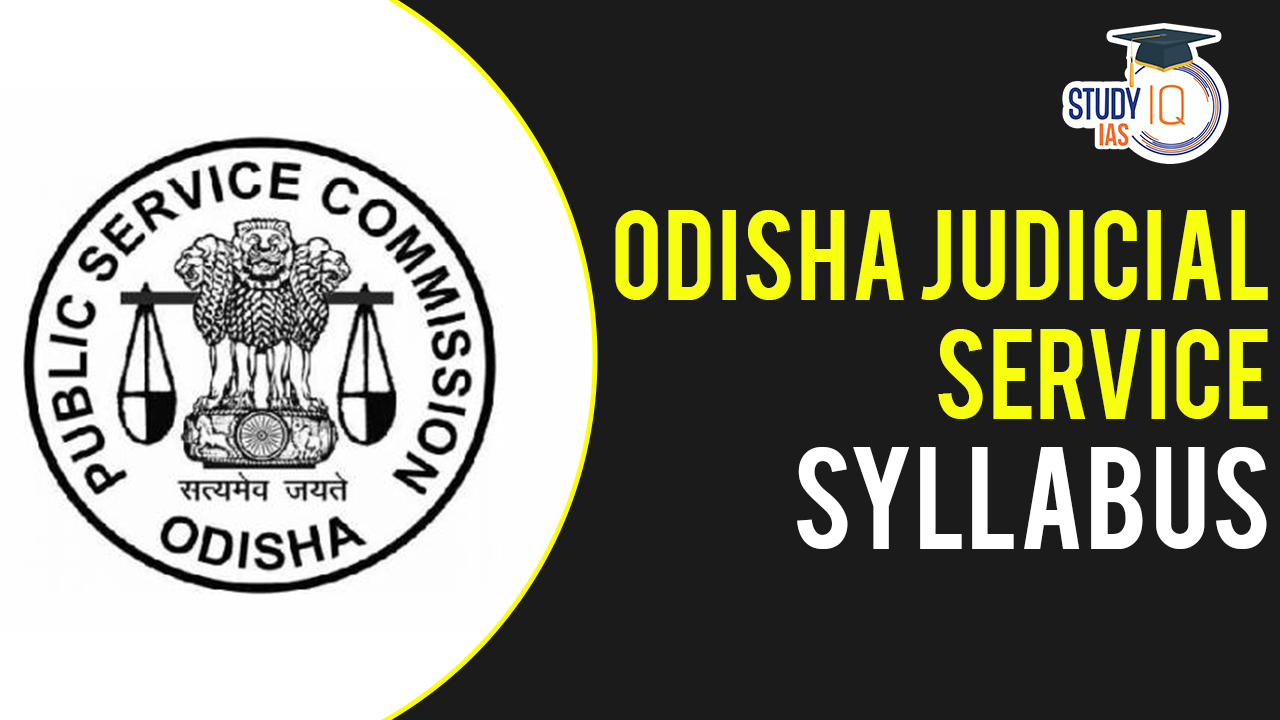
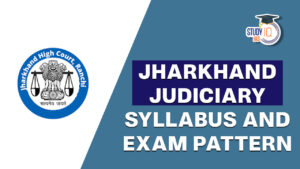 Jharkhand Judiciary Syllabus 2025, Preli...
Jharkhand Judiciary Syllabus 2025, Preli...
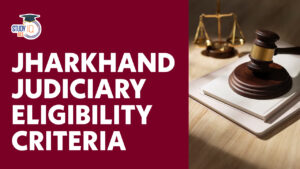 Jharkhand Judiciary Eligibility, Check C...
Jharkhand Judiciary Eligibility, Check C...
 Jharkhand High Court Admit Card Out at j...
Jharkhand High Court Admit Card Out at j...
